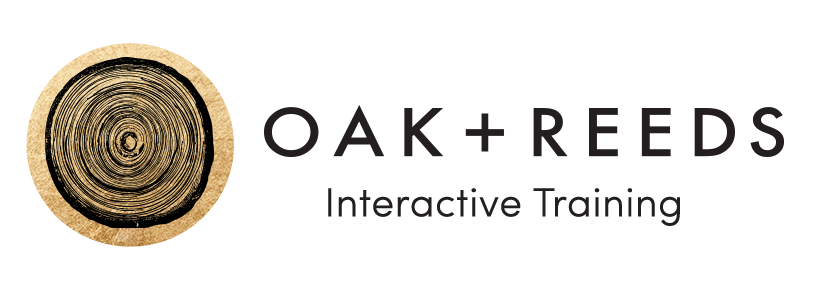With today’s low unemployment rate, we’re in a candidate-friendly job market. Hiring managers need to be on their A-game throughout the interview process to make sure they find and attract the right person for the job. But without proper interview training, hiring managers may fall into the trap of relying on their own assumptions about what a great candidate “should” look like, instead of the team’s shared objectives for a role.
Taking a skill-based interviewing approach will help hiring managers define the core skills needed for a role, objectively evaluate candidates, and ultimately make a great hire. Check out our four-step process to conduct effective interviews.
1. Create a Structured Interview Plan
Structured interviews use the same set of questions and evaluation criteria across candidates for a role. The goal is to evaluate candidates using a consistent, repeatable process that focuses on key job skills.
Start by listing the core skills and attributes needed for the role and coming up with the behaviors you believe constitute solid evidence of these skills. Then, develop a set of questions that provide candidates the opportunity to share examples of these behaviors.
For example, if you’re evaluating collaboration skills, note how candidates discuss working with their colleagues, developing cross-functional goals with internal partners, and sharing their team’s successes versus their own contributions. This technique will help you focus your interviews by prioritizing searching for objective evidence of skills rather than relying on a “gut feeling” about a candidate’s general abilities.
Though it takes a little more work upfront, structured interviews actually save time in the long run. You’ll use the same skills rubric and line of questioning across all candidates, which not only provides more consistency and fairness but results in apples-to-apples comparisons that simplify the post-interview evaluation.
2. Practice Active Listening
While it’s important to have an overall interview plan, it doesn’t mean you have to robotically stick to a script. Interviews are conversations between two people—and that’s where active listening comes into play.
Active listening is a core communication skill that helps you understand and remember what a person says. It entails paying full attention to candidates’ verbal and nonverbal communication—not only listening to responses but being aware of eye contact, facial expressions, and tone.
We’re all busy and it’s often challenging to overcome short attention spans and the myriad notifications from our email, Slack, and calendar. But being distracted during interviews could result in missing out on important differentiators and interesting moments. One easy behavior change is to silence your phone and mute computer notifications during an interview conversation (those emails and messages will be there when you’re done!).
Practicing active listening will prevent you from interrupting or thinking about what you want to say next. It also helps you discover opportunities for unplanned follow-up questions to go deeper into a unique experience and ensure you have enough evidence to properly evaluate a candidate’s skills and abilities.
3. Tackle Unconscious Bias
Whether we like it or not, we all have unconscious biases based on personal experiences and societal expectations. At a fundamental level, unconscious biases are shortcuts our brain uses to make decisions quickly. When left unchecked, they can cause us to evaluate people based on instinct rather than evidence.
In interviews, our biases act as a lens that influences the way we interpret candidates’ answers. When faced with limited information, our brains tend to subconsciously map candidates to people we’ve worked with in the past who we feel are similar. Because of this, it’s critical for all interviewers to actively work to limit the impact of these biases as much as possible.
In addition to using a consistent interview structure across all candidates, hiring managers can tackle unconscious bias by avoiding beginning interviews with “chit chat” on topics unrelated to the role—including questions about where candidates are from, whether they have kids, and what they did over the weekend. These questions don’t focus on the candidate’s qualifications and may result in evaluating them based on how well you relate to the candidate, or how similar they are to you.
For example, instead of asking a candidate about where they live or what their commute is like, pose questions directly related to the requirements of the role such as, “We have a weekly 9 am meeting on Tuesdays—are you able to be in the office at that time?”
Some organizations try to show off their fun culture with irreverent interview questions like “If you could be any animal, which would you be?” But these queries are incredibly subjective. The answer “owl” can be interpreted in five different ways by five different people, and it doesn’t provide any objective evidence of skills or values!
4. Follow Through with an Objective Evaluation
You’ve done that hard work of conducting an effective, fair interview—now it’s time to set yourself up for successful candidate evaluation.
Once the interview is over, refrain from sharing your thoughts with other interviewers until they’ve all met with the candidate and you’re gathered together for a debrief meeting. Ask interviewers to record their feedback immediately, focusing on specific, factual evidence about the agreed-upon skills. Because of your structured interview plan, you’ll be able to easily compare responses and choose the right candidate for your team.
Bad hires happen when organizations hire candidates who are great interviewers but don’t have the right skills for the role. Remember: your role is never to evaluate whether or not a candidate is a great interviewer. Instead, your mindset should be to give each candidate as many opportunities as possible to provide clear evidence of their skills and values.
By focusing on gathering objective evidence about desired skills, you’ll be on the right track to building a great team.

